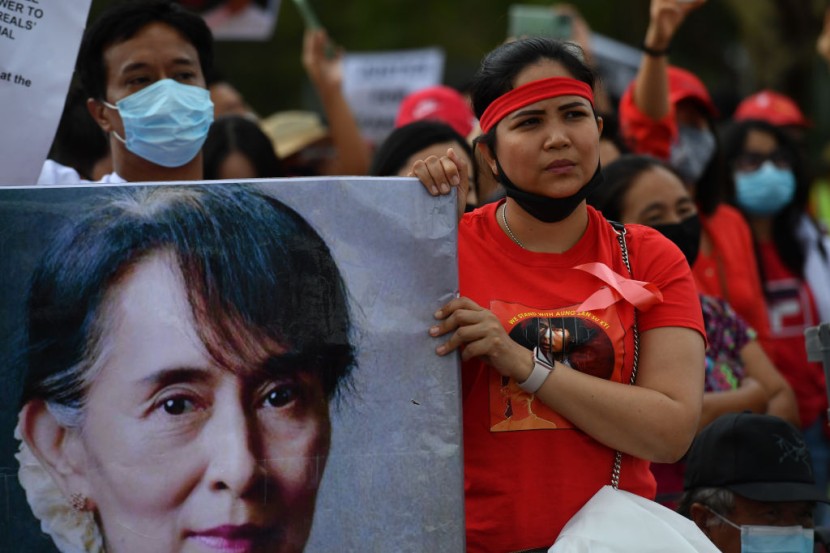
Aung Suu Kyi, Myanmar's ousted leader, stood on trial on Monday in a closed-door hearing. Critics are calling it an attempt by the military junta to eliminate her as a political factor and to remove the country's democracy while increasing the military's authority and power.
Last year, Suu Kyi's National League for Democracy party secured a landslide victory. However, a coup in February prevented elected lawmakers from taking office. Suu Kyi's prosecution is the latest event in a series of major setbacks for the politician, who has been struggling to progress towards democracy in Myanmar.
Human Rights Watch's Asia Director, Phil Robertson, said the accusations against Suu Kyi were baseless and are an attempt to disregard her political victory and prevent her from running ever again. Robertson added this was only the first step in the plan to suppress Suu Kyi's Democracy party due to its challenge of the military, The Globe and Mail reported.
Reversal of the Coup
The U.N. expressed its desires to have Suu Kyi freed along with all of her administration's senior members, U.N. deputy spokesman Farhan Haq said. He added Secretary-General Antonio Guterres continues to call for the reversal of the coup on February 1. He also called for the restoration of the legitimate government of Myanmar that Suu Kyi served under.
On February 1, the army took control of the nation before elected lawmakers could be seated, arrested Suu Kyi, who was the special counselor, President Win Myint, and other members of her government and the ruling party. Most of the country quickly spiraled into chaos while under military rule.
The army countered criticisms by saying the government was unable to properly investigate accusations of irregularities in the voting process. Afterward, officials said they found evidence of voter fraud, much to the objection of the independent Asian Network for Free Elections and many others.
Within the next year or two, the junta is planning to hold new elections, officials said. However, history has shown that the military has had multiple cases of not following its promise of new elections. For 50 years, Myanmar has been ruled by the military after the 1962 coup. After a failed 1988 uprising, Suu Kyi was kept under house arrest for 15 years, the Associated Press reported.
Behind Closed Doors
At the hearing inside the Naypyidaw council compound, the military junta did not allow any journalists to enter. Suu Kyi appeared to not have been well with her health, defense lawyer Khin Maung Zaw said. However, he said the politician continued to listen with awareness and interest.
Before her trial, Suu Kyi only had three meetings with her legal team since being imprisoned on February 1. Junta officials disallowed her access to the internet or gaining access to information other than state-controlled media for the last four months.
The court will hear further cases against Suu Kyi on Tuesday, including a charge of incitement against her, Win Myint and Dr. Myo Aung, the capital chairman and Naypyidaw city mayor, The Guardian reported.
Related Article: Former US Marine Imprisoned in Russia Infected With COVID-19 Amid Lack of Proper Care








